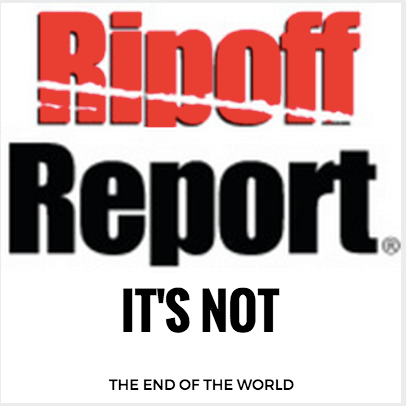A couple of months ago, I did a breakout session at Social Media Marketing World on crisis communications.
Because of that, I have had the opportunity to help some organizations with some interesting cases of both issues and crises.
Throughout my career, I have handled everything from asbestos found in a food manufacturing plant and tires that blew up when they were driven faster than 45 mph to the Japanese dumping fish into the United States and an employee shot and killed at work.
There has been no shortage of scary things to deal with and the Internet has made it even more challenging.
Don’t Panic!
You see, now everything is a crisis.
Someone says something negative about you online? We want to respond as if it’s a crisis.
There is a bad review online? We want to respond as if it’s a crisis.
A disgruntled former employee leaves a bad review on Glassdoor? Wewant to respond as if it’s a crisis.
These things, quite fortunately, are not crises. They are issues that could be blown into crises if not handled well, but they can be handled.
It’s great for business here because I get lots of panicked calls from executives needing help managing the issues, and I spend a lot of time talking people off the ledge.
But, most of the time, it’s not worth getting all panicked. Sure, you should absolutely be paying attention and you absolutely should respond, but remember this: It’s rarely worth getting upset about.
Reputation Management
Such is a situation that came up recently.
A woman I met at Social Media Marketing World works for a company that has a pretty bad review on Ripoff Report.
The good news is they have only that one complaint (which is actually pretty commendable in their line of work) and it’s two years old.
They also have one really good review on Yelp and an A+ rating from the BBB.
The bad news is—and I’m certain it’s why the executives keep bringing it up—it’s on the first page of Google results.
But it’s not on the first page when you search just the company name. When you search that, you see their social networks, you see the good reviews, and you see the A+ rating.
When you add “reputation” to the search, you find the Ripoff Report review.
So company name, alone, has only great things on the first page of results. But when a savvy searcher adds “reputation” to the company name, they’ll find this pretty bad review.
Content is King, in this Case
This is when I have to talk someone off the ledge.
In the big scheme of things, if you were doing your research and found all of these great things on Yelp and on the Better Business Bureau, and also found the Ripoff Report review, what would you think?
Most of us expect signs of imperfection when we search for companies. Yes, we’ll read the bad review and take notes, but it also makes us smarter in the questions we ask the sales guy before we hire the company.
It’s not life or death, by any stretch of the imagination.
That said, it’s really smart not to ignore it. And there are some things you can do to push that negative review to the second or third pages of search results.
Content, content, content.
Move a Bad Review from Search Results
If I were working with this company, this is what I would recommend:
- Create content that uses “Company Name Reputation” as the key phrase. They have a YouTube channel so I would recommend they create videos that have that exact phrase in them.
- They don’t have a blog so I’d recommend they consider adding one. But, if they’re not going to do that, they can create content for business, news, and trade publications as part of their PR efforts (this is our three-pronged approach to media relations). Use “Company Name Reputation” as the key phrase in that content.
- Once a week, they should use the social networks (particularly Google+) to promote the videos and contributed content. The status updates should include “Company Name Reputation” in them.
- Ask people to review the company on Yelp. While you can’t incentivize anyone to write a review, you most certainly can ask. Not everyone will do it, but most won’t know to even do it without being asked.
It won’t happen overnight, but within a few months, they’ll see that review move closer to the bottom of the page and, after nine to 12 months, it’ll leave the first page entirely.
If you were working with this company, what would you recommend they do to get the Ripoff Report off the first page of search results?
